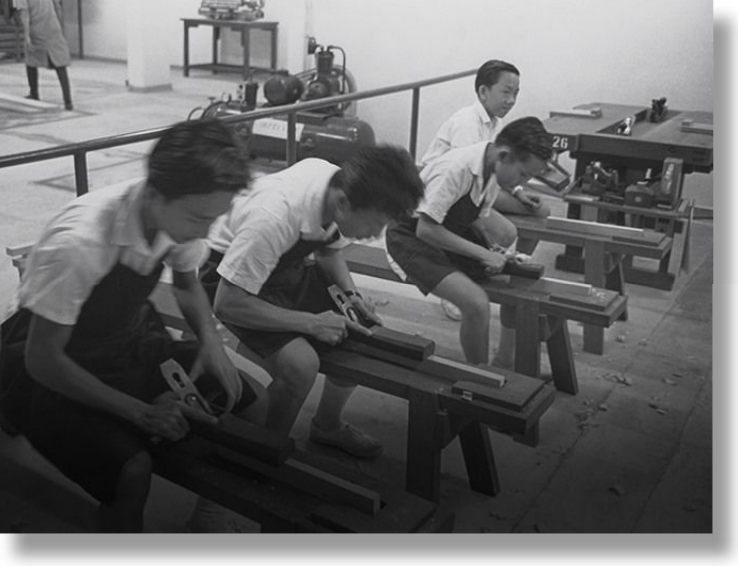Technical Training

📷: Woodwork class at Kim Seng Technical School (1966). Ministry of Information and the Arts Collection, courtesy of National Archives of Singapore.
#TIL that technical training started gaining importance in the 1950s with Singapore’s shift towards export-oriented manufacturing as the main strategy to generate employment and economic growth.
In 1967, the British’s announcement that it would withdraw its forces from Singapore by the mid-1970s worsened Singapore’s economic prospect as British military bases contributed over 20 percent to our gross national product at the time. When it became clear that the British had no intention of changing their mind and in fact, brought forward the withdrawal of the military from the mid-1970s to 1971, the threat of large-scale unemployment as a result of the withdrawal renewed Singapore’s drive towards industrialisation.
Between the late 1960s and 1980s, the government extended technical education to the secondary level and established more technical and vocational schools. For those already in the workforce, the focus was on continual upgrading of skills and certification.
In the 1990s, as Singapore shifted its focus to high value-added industries and services, a more educated and skilled workforce was needed. Vocational and technical training were elevated to be taught at the post-secondary level. The Institute of Technical Education (restructured from the Vocational and Industrial Training Board) together with the polytechnics embarked on a journey to revamp their approach to ensure that the technical training offer opportunities for further studies and career upgrading.
Today, Polytechnics and ITEs go beyond the core of technical training to provide students with holistic competencies that will enable them to meet real-world needs. In 2014, the Continuing Education and Training Masterplan (CET 2000) was renewed to develop learning opportunities and deepen expertise in the workforce with the support of employers. The SkillsFuture national movement was launched in the same year to enable Singaporeans to equip themselves with the knowledge and skills needed for emerging industries. These initiatives ensure that Singaporeans have opportunities to progress together and stay versatile and relevant in the workforce.

